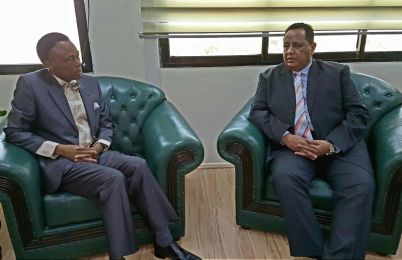UNAMID’s local workers threaten to go to court over financial dues
February 28, 2016 (EL-FASHER) – A hundred and thirteen security guards who worked for the hybrid peacekeeping mission in Darfur (UNAMID) have threatened to resort to court to get unpaid financial dues from the mission.

Last Tuesday, several UNAMID local employees in North and Central Darfur states have protested in front of the mission’s premises in El-Fasher and Zalingei to demand financial dues which weren’t recognized by the mission.
The committee said that the security guards used to work more than 40 hours a week, stressing that more than 100 employees haven’t received their financial dues according to the labour laws.
It added that the security guards have been negotiating with the UNAMID for more than three months, saying the mission was forced to recognize some of their financial dues and denied others.
They pointed out that the mission’s human resource department, in a move against the laws of the UN missions, has arbitrary laid off several workers who demanded their financial dues.
A number of the committee members told Sudan Tribune that the mission promised to pay them the 2015 overtime dues on Monday but said it wouldn’t recognize the financial dues for the previous years.
The committee underscored that it wouldn’t abandon the rights of the employees even if it took the case to court, pointing that the security services in North Darfur state has mediated between the affected and the mission in El-Fasher.
Earlier this month, the UN leadership in New York interfered to address the dispute over how its agencies and missions should pay salaries of its Sudanese local staff.
Sudanese staff threatened to strike in protest against the lack of response to their repeated demands to be paid in US dollar instead of the Sudanese pound.
(ST)
